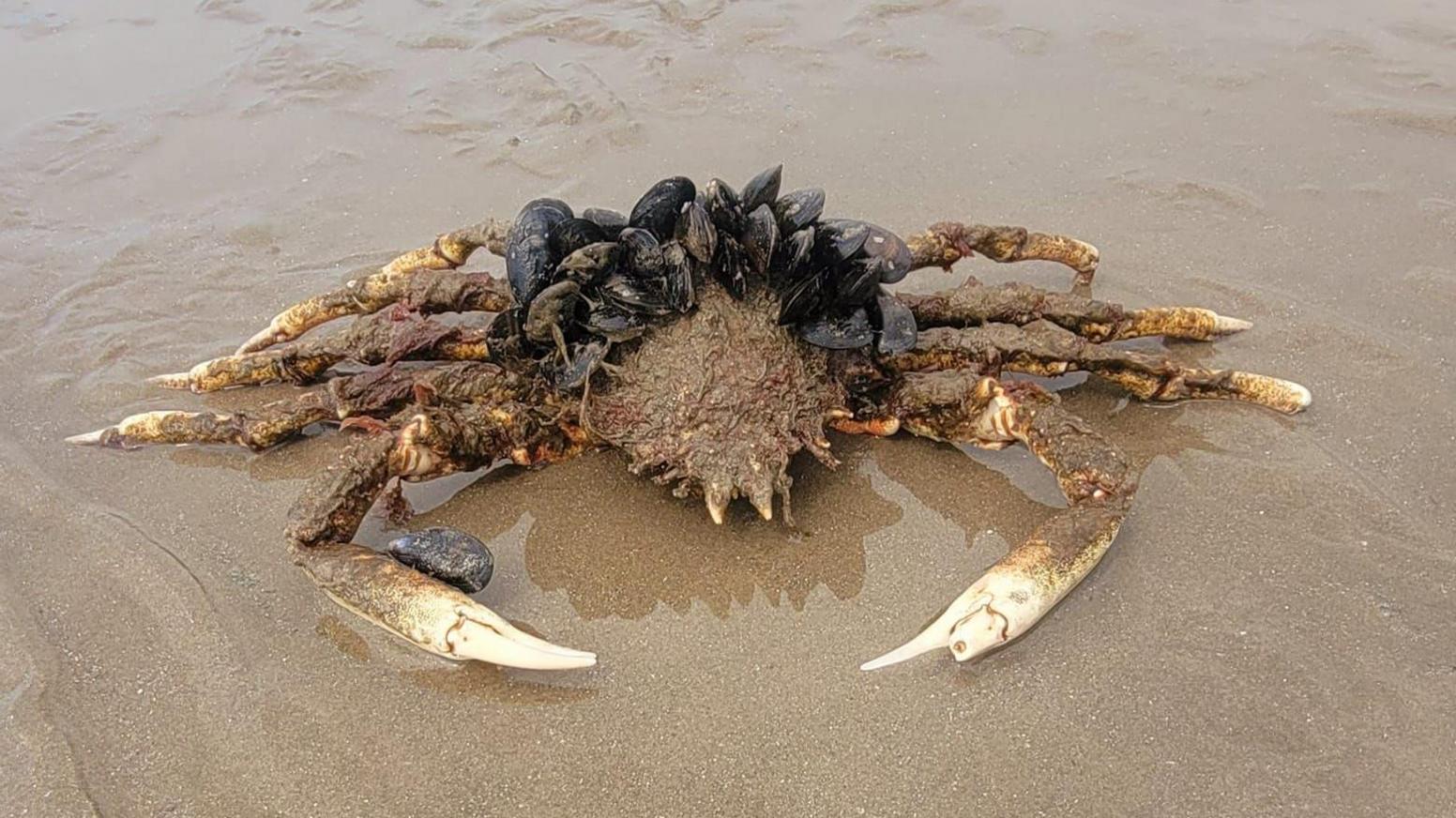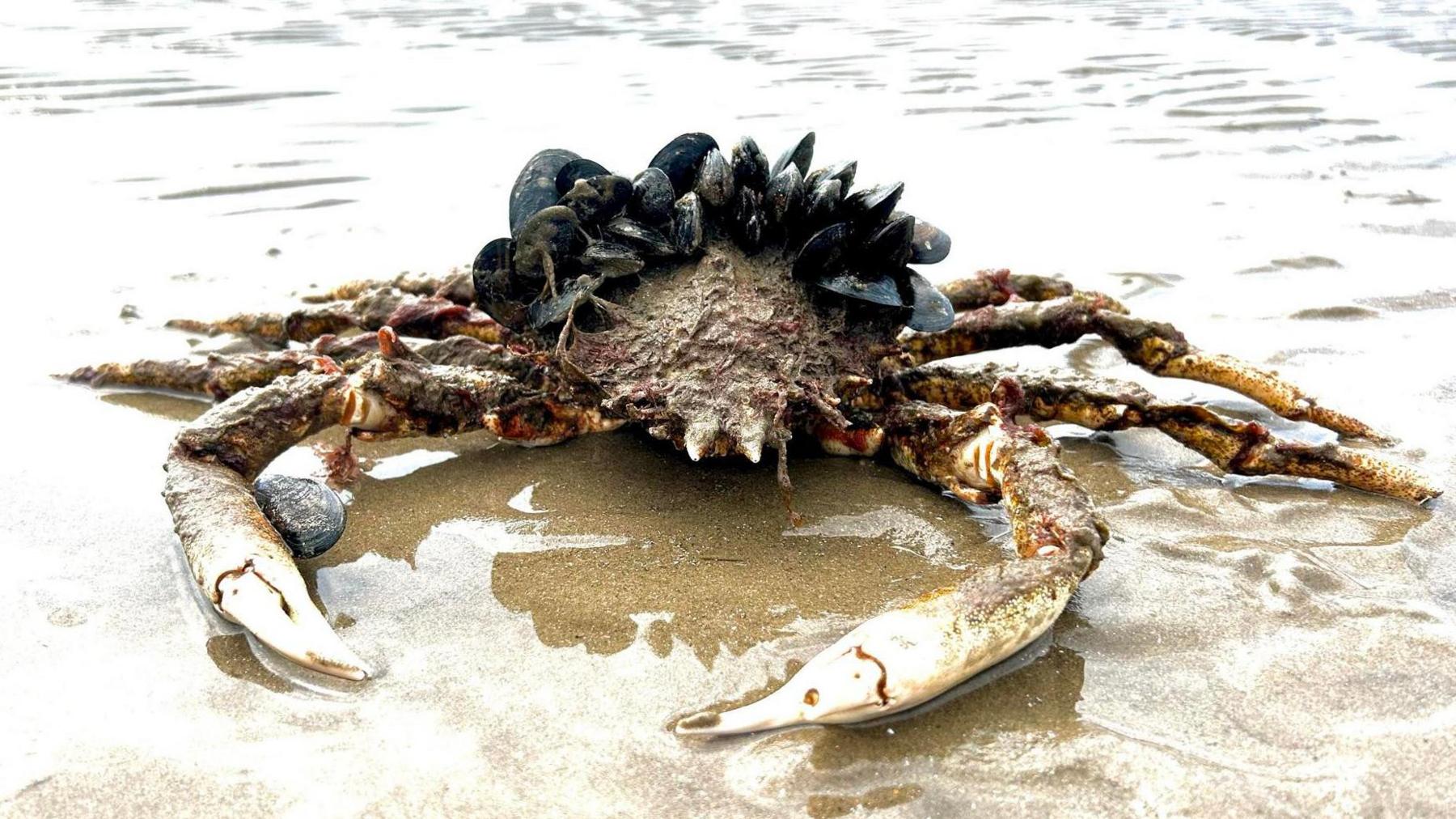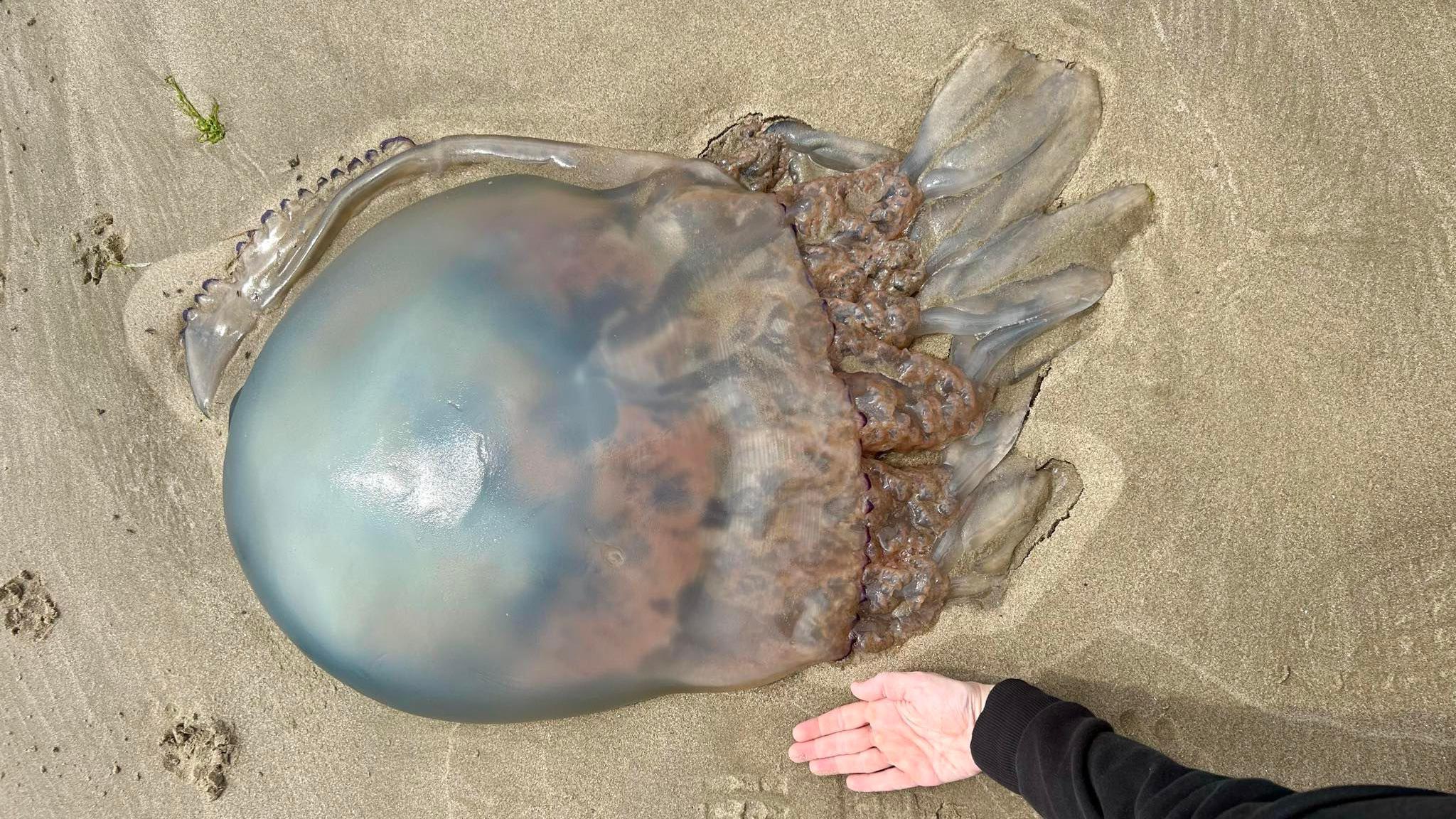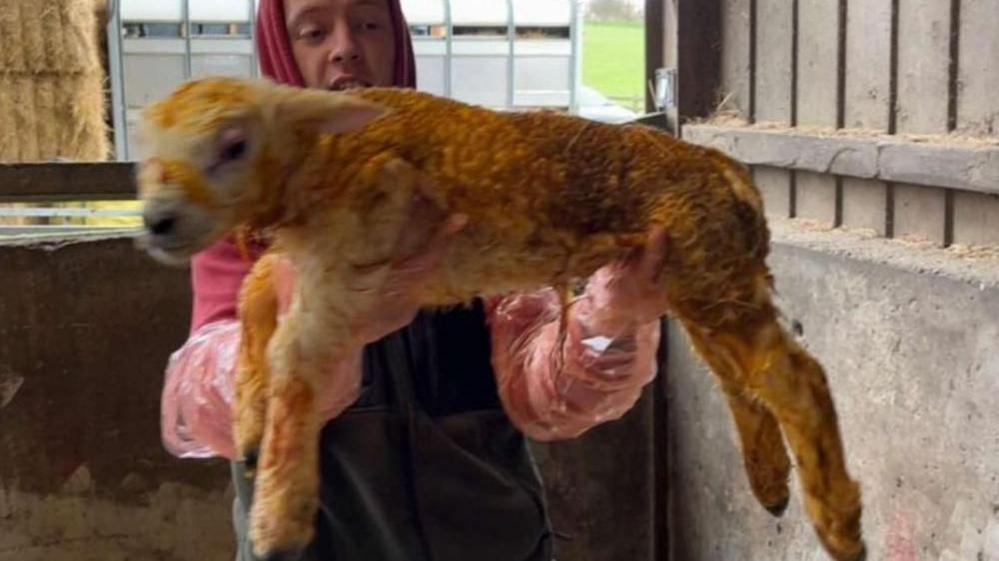Big crab with mussel hair-do fascinates beachgoers

Amy Carter and Scott Southey said the crab was "fascinating"
- Published
A couple have said they were "fascinated" to find a large washed-up crab on a north Wales beach.
Amy Carter, 46, and her partner Scott Southey, 49, were walking at Talybont, near Barmouth, Gwynedd, last Monday when they found the crustacean, understood to be a spiny spider crab.
"I was a bit nervous," said Ms Carter. "Because it was extremely big. With his little hair-do of mussels that was stuck to him, it was very, very fascinating."
Spiny spider crabs are a common species in the UK.
Two octopuses found walking on Welsh beach. Video, 00:02:18
- Published24 February 2022
Mouse filmed tidying up man's shed every night
- Published7 January 2024
Frankie Hobro, marine biologist and director of Anglesey Sea Zoo, said a fully grown male could grow up to 50cm (1.6ft) from claw-tip to claw-tip.
Ms Carter said she and her partner had been holidaying in Talybont for many years.
"We've seen plenty before," she said, "but we've never seen anything that big! We were amazed and fascinated by the size".

Amy and her partner Scott spotted the dead spider crab at Talybont beach, near Barmouth
Ms Hobro said spider crabs could live for many years.
"It looks as if this individual is dead, and that mussels and other marine life have taken advantage of the carcass as an anchor point," she said.
"But it is equally likely that these animals were living happily on the shell of the crab while it was alive.
"Like all crustaceans, spider crabs have to moult their outer shell to grow, so it is common to find intact crab moults along our shoreline and these can be mistaken for dead crabs."

The couple also spotted a washed-up barrel jellyfish
Ms Carter and Mr Southall, from Walsall in the West Midlands, also found a washed-up barrel jellyfish during their walk.
They shared their pictures in a now-viral post on the I Love Barmouth Facebook page, describing them as "monsters of the sea".
"Imagine swimming next to one that size," one Facebook user replied. "I'd freak!"
Lloyd Nelmes, marine biologist at Sea Trust Wales, said barrel jellyfish were a common species in UK waters which could grow up to 1.5m (5ft) in length and weigh up to 40kg (88lbs).
"There are many potential reasons why they could wash up, from unusual weather conditions or stress from human factors such as pollution," said Mr Nelmes.
"Barrel jellyfish are an important source of food for the largest turtle in the world, the Leatherback, which travels all the way from the Caribbean sea to the UK to eat up to 1,000 jellyfish a day."
- Published20 August 2023

- Published20 March 2024

- Published28 May 2024
